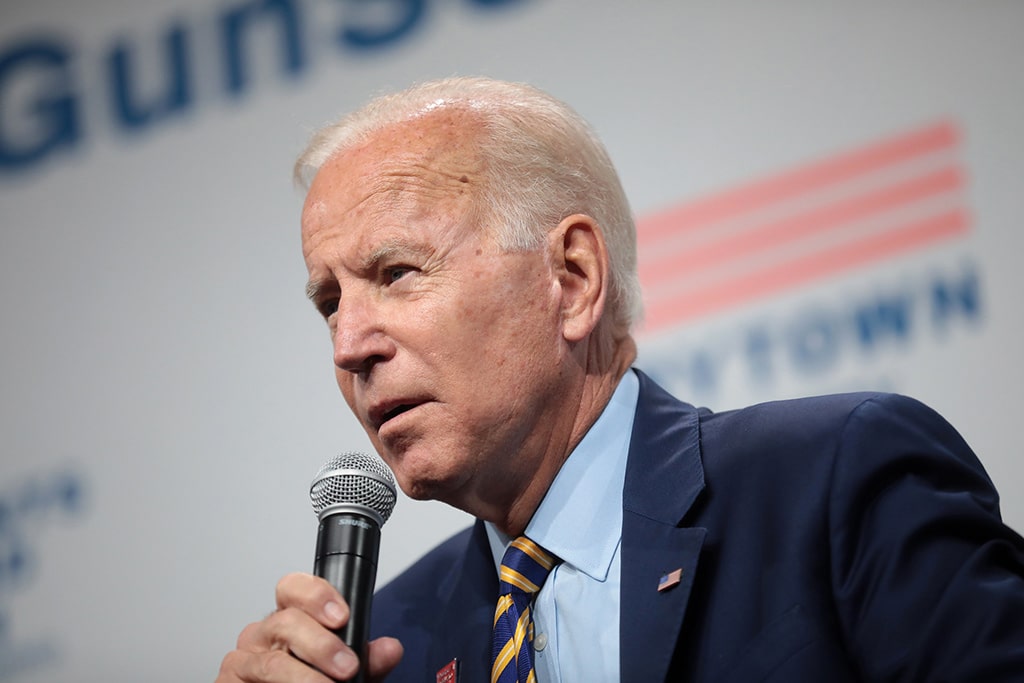
Joe Biden has prevailed over Trump the person, but will have to deal with the ghost of Trumpism. Biden has accrued more votes than any other President in history (although the population and the turnout have also of course grown, and in percentage terms he has not exceeded Obama in 2008). He has won, but there was no ‘blue wave’ (the Democrats’ colour), despite the pollsters’ predictions. Donald Trump, with so much against him in the midst of a pandemic and an economic crisis, has won more votes than four years ago and he bequeaths a toxic legacy to his opponent in a landscape where Trumpism will not be fading away. It has often been said that Trump, an outsider, has been more an effect than a cause, but his term in office will leave a deep impression. He has been both effect and cause. And he is not going to stop influencing, in a society that he has helped to polarise even more than it already was. There are two United States, two Americas, two souls, that for now seem irreconcilable, because they rest on profound differences of culture and identity, which manifest themselves in separate friendships, in demarcated neighbourhoods and even in opposing views on COVID-19. Biden has vowed to put an end to the ‘grim era of demonisation in America’.
In the wake of the votes –and indeed before– come the court cases, as Trump had already announced during the campaign, and repeated with unfounded accusations of fraud during the count. It is possible that something will reach the Republican-dominated Supreme Court. But this is not Bush versus Gore in 2000 where, among other differences, there was just a single state –Florida– at stake. As has already become evident, the Trump campaign’s legal team face a much tougher prospect this time. For now, there has been no proof of fraud. Other potentially problematic aspects are still to emerge, and a handover of power that could prove difficult, due to Trump’s vengeful personality and inability to lose gracefully.
Some, like Thomas Wright, believe that Trump has already become one of the Presidents who will endure longest in the memory, because he has been the ‘first mad President’, and ‘the story of a mad king is an immortal tale’. He had to be studied in order to understand the US at the dawn of the 21st century. But he is not mad; rather, he has grasped what American society has come to. Trump will leave office, but not necessarily power. In contrast to other former Presidents, he may continue playing an active part in the political landscape. His electoral base, the coalition that comprises it, remains not only intact but larger, and it adores him. The Democrats have been incapable of tackling the problems on which it rests (the rural-urban divide, inequality, industrial decline and robotisation, job insecurity, racism, differences in gender, religiosity, law and order and the right to bear arms, etc), either under Clinton or Obama, over a span of decades in which US society has undergone profound change. And Trump and his team possess the much-coveted data relating to this base.
Between now and 20 January, if he does not win in the courts or with political and institutional manoeuvres, Trump can still do things to leave his mark. He has already managed –thanks to a series of deaths– to impose a long-lasting Republican majority of six to three on the Supreme Court, where so many disputes in the US end up, as well as on the federal court circuit. But the decisive factor in terms of the new legislature will be who controls the Senate, pending the runoff races in Georgia for two seats on 5 January, a ballot that may determine the fate of the Biden Administration. If the Democrats fail to take control, even by dint of the casting vote of the likely President of the Senate, the first female and black Vice President Kamala Harris, Biden’s important but moderate agenda, at an extremely difficult time of health, economic and social crises, will struggle to gain traction, although he could use executive orders to undo part of Trump’s legacy. The Republican majority in the Senate may block the Administration’s essential appointments. Biden will have to make deals and look for consensus –something in which he is experienced– and thus it will be no surprise to see a Republican in his cabinet. If the Republicans confirm their control of the Senate, the one to keep an eye on is the Trump supporter-in-chief in their ranks, the current majority leader Mitch McConnell, the Senator who went for Obama’s political jugular and blocked Trump’s impeachment. All this comes when the country is awaiting a new fiscal stimulus; Trump and McConnell blocked a Republican and Democrat agreement on this a few days before the election on 3 November because it would have made life easier for a possible Biden Administration.
Trumpism will survive even without Trump. It has become a way of life. And its presence in Congress has increased after the election. There is already a suggestion that Trump, someone who cannot bear to see himself as a loser, unhappy with Fox, is going to launch his own television channel (Trump TV) and will remain very active on social media, spreading discord and fake news (as he has during the count). Who knows if he will try to run again in 2024, if only to remain a leading figure and to influence the Republican Party, which he has made his own in recent years. Constitutionally he may, because it would be his second term of office, although by then he will be 78 (as Biden will be when he enters the White House). But the courts, especially in New York, are also on Trump’s trail, particularly for shady aspects of his business affairs before reaching the White House.
The Republicans have lost, but are heartened to have secured part of the black vote, and a third of the Latino vote, something that is also more cultural than economic. Prior to the pandemic, Trump managed to lift the wages of the lowest-paid after years of stagnation. He has served the rich, but he has also partly turned the Republicans into a working-class party, previously the preserve of the Democrats. The Republicans will do all they can in the 2022 mid-term elections to control the Senate and to ensure the Democrats lose their majority in the House of Representatives, where a defender of the QAnon conspiracy theory now represents Georgia. Meanwhile, Biden will face the daunting task of trying to overcome the polarisation of the country and at the same time achieving a much-needed overhaul of the Democratic Party, which in the prevailing circumstances should have won a more emphatic victory, had it read its own country better. He is perhaps the best person to attempt it at these times, with his calls for harmony and unity.
The new President’s priority is going to be domestic –the pandemic and the economic and social crisis– although it will be very difficult for him to govern against almost half the country. It is in foreign policy –barring the ratification of treaties, although international law is in crisis– where he will have most room for manoeuvre, even if he does not control the Senate. Biden, more pro-European while also demanding of the EU, will restore the diplomacy and hard work of a State Department decimated by Trump, and will seek allies, not just partners, since he does not share his predecessor’s transactional view of foreign policy. That said, foreign policy is often shaped more by unforeseen crises than by intentions. It is likely, and indeed has already been announced, that the US will return to the Paris agreement on climate change, to the World Health Organisation (WHO) and possibly to the nuclear deal with Iran; in other words, to a degree of multilateralism, a taboo term for Trump, who rejected the Sustainable Development Goals for 2030 to which Biden may give new impetus. But the crisis in multilateralism, to the benefit of multipolarity, is attributable not only to Trump but also to the fact that the world has changed, especially the shifting of the geopolitical centre of gravity towards Asia, and particularly China. Biden can restore part, no more, of the US position in a global order that it decisively helped to create in the post-World War II era and after. For global governance to work, a US in which internal governance works is also required.
Even though it is losing the Oval Office, Trump’s populism will continue to be a significant force to be reckoned with within and outside the US. Biden’s victory need not necessarily entail a weakening of populists in other parts of the world, whether Bolsonaro in Brazil, Orbán in Hungary or VOX in Spain, not forgetting Johnson in the UK, who is losing a partner. These draw great inspiration from Trumpism, and will contribute to the polarisation of their societies and the world. Meanwhile, China views this great spectacle with interest and with its sights set on the long term; and it must be admitted that a democratic spectacle such as this has been and continues to be stimulating. The 46th President, no less.


